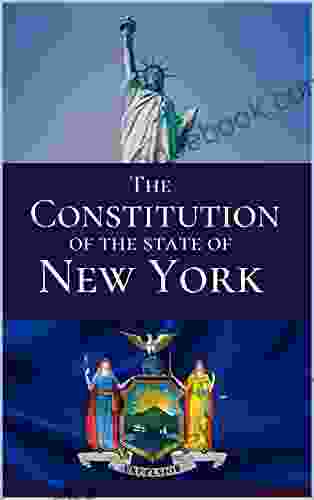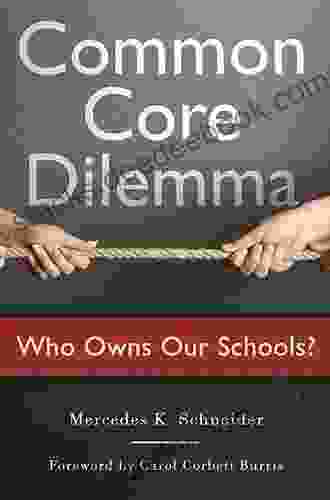Common Core Dilemma: Who Owns Our Schools?

Table of Contents:
- What is Common Core?
- Origins of Common Core
- Arguments for Common Core
- Arguments against Common Core
- Who Controls Education?
- The Future of Education
The Common Core State Standards Initiative (CCSSI) is a set of educational standards that define what students in kindergarten through grade 12 should know and be able to do in English language arts and mathematics. The CCSSI were developed by the National Governors Association Center for Best Practices (NGA Center) and the Council of Chief State School Officers (CCSSO) and were adopted by 45 states and the District of Columbia.
The CCSSI have been praised by some for setting high standards for student achievement and for providing a more consistent curriculum across states. However, they have also been criticized for being too rigorous, for narrowing the curriculum, and for giving too much control over education to the federal government.
5 out of 5
| Language | : | English |
| File size | : | 581 KB |
| Text-to-Speech | : | Enabled |
| Screen Reader | : | Supported |
| Enhanced typesetting | : | Enabled |
| Word Wise | : | Enabled |
| Print length | : | 264 pages |
The debate over the CCSSI has raised important questions about who owns our schools and who should control education. This article will explore the CCSSI, the arguments for and against them, and the future of education.
What is Common Core?
The CCSSI are a set of educational standards that define what students in kindergarten through grade 12 should know and be able to do in English language arts and mathematics. The CCSSI were developed by the NGA Center and the CCSSO and were adopted by 45 states and the District of Columbia.
The CCSSI are based on the belief that all students should have access to a high-quality education that prepares them for success in college and career. The standards are designed to be rigorous and consistent across states. They focus on the key skills and knowledge that students need to be successful in the 21st century.
The CCSSI are divided into two strands: English language arts and mathematics. The English language arts standards cover reading, writing, speaking, and listening. The mathematics standards cover number and operations, algebra, geometry, and statistics and probability.
The CCSSI are not a curriculum. They do not tell teachers how to teach. Instead, they provide a framework for what students should learn. Teachers are free to use their own methods and materials to teach the standards.
Origins of Common Core
The CCSSI were developed in response to concerns about the quality of education in the United States. In 2009, the NGA Center and the CCSSO convened a task force to develop a set of common standards for English language arts and mathematics. The task force was composed of teachers, administrators, and other experts from across the country.
The task force developed the CCSSI over a period of two years. The standards were based on research on what students need to know and be able to do to be successful in college and career. The standards were also designed to be consistent across states, so that students would have the same opportunities for success no matter where they lived.
The CCSSI were adopted by 45 states and the District of Columbia in 2010. The standards have been implemented in most states since then.
Arguments for Common Core
There are many arguments in favor of the CCSSI. Proponents of the standards argue that they:
* Set high standards for student achievement. The CCSSI are based on research on what students need to know and be able to do to be successful in college and career. The standards are more rigorous than the standards that were in place in many states before the CCSSI were adopted. * Provide a more consistent curriculum across states. The CCSSI are the same for all states that have adopted them. This means that students will have the same opportunities for success no matter where they live. * Improve student achievement. Studies have shown that students in states that have adopted the CCSSI have made significant gains in student achievement. The CCSSI have helped to close the achievement gap between different groups of students. * Prepare students for college and career. The CCSSI are aligned with the skills and knowledge that students need to be successful in college and career. The standards focus on critical thinking, problem solving, and communication.
Arguments against Common Core
There are also a number of arguments against the CCSSI. Opponents of the standards argue that they:
* Are too rigorous. The CCSSI are more rigorous than the standards that were in place in many states before the CCSSI were adopted. This has led to some students struggling to meet the new standards. * Narrow the curriculum. The CCSSI focus on reading, writing, and mathematics. This has led to other subjects, such as social studies and science, being given less attention. * Give too much control over education to the federal government. The CCSSI were developed by a task force that was convened by the NGA Center and the CCSSO. These organizations are not part of the federal government. However, some critics argue that the federal government had too much influence over the development of the CCSSI.
Who Controls Education?
The debate over the CCSSI has raised important questions about who owns our schools and who should control education. Traditionally, education has been a state and local matter. However, the federal government has become increasingly involved in education in recent years.
The federal government provides funding for education through a variety of programs, including Title I, IDEA, and Head Start. The federal government also sets education policy through laws such as the No Child Left Behind Act and the Every Student Succeeds Act.
The increasing involvement of the federal government in education has led to some concerns about the loss of local control. Critics of the federal government's involvement argue that it has led to a one-size-fits-all approach to education that does not meet the needs of all students.
Proponents of the federal government's involvement in education argue that it is necessary to ensure that all students have access to a high-quality education. They argue that the federal government can provide funding and support that states and local districts cannot.
The debate over who controls education is likely to continue for many years to come. It is a complex issue with no easy answers. However, it is an important issue to consider, as it has implications for the future of education in the United States.
The Future of Education
The future of education is uncertain. However, there are a number of trends that are likely to shape the future of education, including:
* The increasing use of technology. Technology is already playing a major role in education, and its use is likely to continue to grow in the future. Technology can be used to personalize learning, provide students with access to a wider range of resources, and connect students with experts from around the world. * The growing importance of global education. The world is becoming increasingly interconnected, and education will need to prepare students for success in a global economy. Students will need to be able to communicate with people from different cultures, understand different perspectives, and solve problems that have global implications. * The need for lifelong learning. The pace of change is accelerating, and people will need to be able to adapt to new technologies and new ways of thinking throughout their lives. Education will need to provide people with the skills and knowledge they need to succeed in a changing world.
The future of education is exciting and full of possibilities. However, it is also a time of change and uncertainty. It is important to consider the issues that are likely to shape the future of education and to prepare for the challenges and opportunities that lie ahead.
5 out of 5
| Language | : | English |
| File size | : | 581 KB |
| Text-to-Speech | : | Enabled |
| Screen Reader | : | Supported |
| Enhanced typesetting | : | Enabled |
| Word Wise | : | Enabled |
| Print length | : | 264 pages |
Do you want to contribute by writing guest posts on this blog?
Please contact us and send us a resume of previous articles that you have written.
 Chapter
Chapter Text
Text Paperback
Paperback E-book
E-book Magazine
Magazine Sentence
Sentence Bookmark
Bookmark Glossary
Glossary Bibliography
Bibliography Foreword
Foreword Preface
Preface Footnote
Footnote Manuscript
Manuscript Scroll
Scroll Codex
Codex Bestseller
Bestseller Classics
Classics Narrative
Narrative Memoir
Memoir Encyclopedia
Encyclopedia Dictionary
Dictionary Narrator
Narrator Catalog
Catalog Card Catalog
Card Catalog Stacks
Stacks Archives
Archives Periodicals
Periodicals Scholarly
Scholarly Reserve
Reserve Academic
Academic Reading Room
Reading Room Special Collections
Special Collections Interlibrary
Interlibrary Thesis
Thesis Storytelling
Storytelling Awards
Awards Reading List
Reading List Book Club
Book Club Theory
Theory Textbooks
Textbooks Richard Lawry
Richard Lawry Christopher Ward
Christopher Ward Christopher Richard
Christopher Richard Emilio J Becker
Emilio J Becker Jack Sanders
Jack Sanders Nicholas Ruggiero
Nicholas Ruggiero Mitch Peeke
Mitch Peeke Elly Griffiths
Elly Griffiths Roy R Luna
Roy R Luna Adrian Trendall
Adrian Trendall Barbara Taylor Bradford
Barbara Taylor Bradford Saeed N Jaffer
Saeed N Jaffer Kersten Hamilton
Kersten Hamilton Mini Grey
Mini Grey Steven Gerrard
Steven Gerrard Stephanie Calmenson
Stephanie Calmenson Dave Simpson
Dave Simpson Helen Lester
Helen Lester David Scott Kastan
David Scott Kastan Chris Collins
Chris Collins
Light bulbAdvertise smarter! Our strategic ad space ensures maximum exposure. Reserve your spot today!

 William FaulknerCaptivating Twisty Psychological Thriller Engulfs You With Its Gripping Plot...
William FaulknerCaptivating Twisty Psychological Thriller Engulfs You With Its Gripping Plot... Gus HayesFollow ·13.5k
Gus HayesFollow ·13.5k Cameron ReedFollow ·13.1k
Cameron ReedFollow ·13.1k Marc FosterFollow ·14.4k
Marc FosterFollow ·14.4k Henry GreenFollow ·11k
Henry GreenFollow ·11k Douglas FosterFollow ·9.8k
Douglas FosterFollow ·9.8k Jake CarterFollow ·7.1k
Jake CarterFollow ·7.1k Victor HugoFollow ·11.4k
Victor HugoFollow ·11.4k Greg CoxFollow ·19.4k
Greg CoxFollow ·19.4k

 Amir Simmons
Amir SimmonsMore Zeal Than Discretion: A Closer Look at the Risks and...
Enthusiasm is often seen as a positive...

 Wayne Carter
Wayne CarterYear of the Dog: American Poets Continuum 178
Year of the Dog is a...

 David Foster Wallace
David Foster WallaceThe Constitution of the State of New York: A...
The Constitution of the...

 Harvey Bell
Harvey BellSmall Cetaceans of Japan: Exploitation and Biology
Small cetaceans, including...

 Blake Bell
Blake BellEffortless Elegance: A Comprehensive Guide to Captivating...
In the realm of crocheting,...
5 out of 5
| Language | : | English |
| File size | : | 581 KB |
| Text-to-Speech | : | Enabled |
| Screen Reader | : | Supported |
| Enhanced typesetting | : | Enabled |
| Word Wise | : | Enabled |
| Print length | : | 264 pages |












